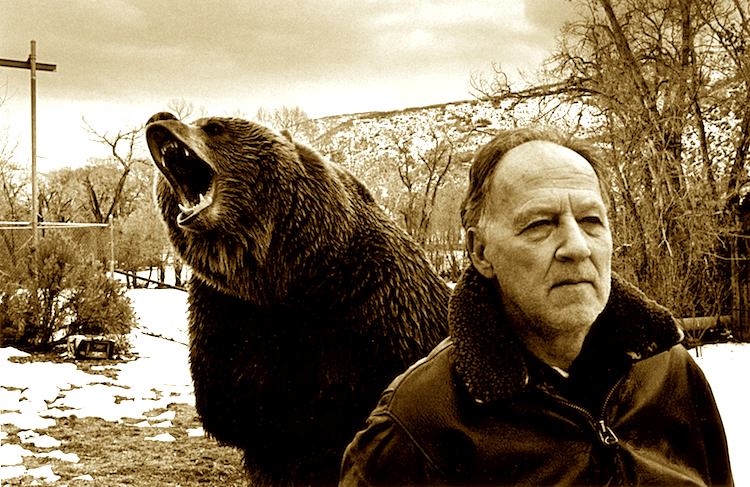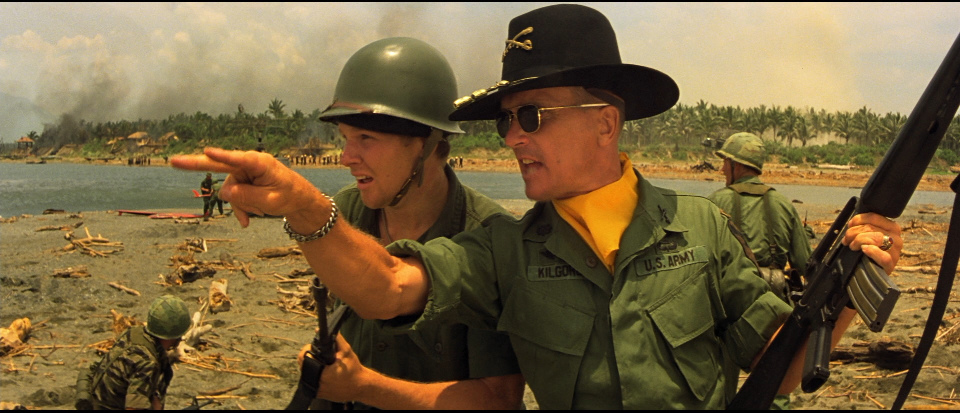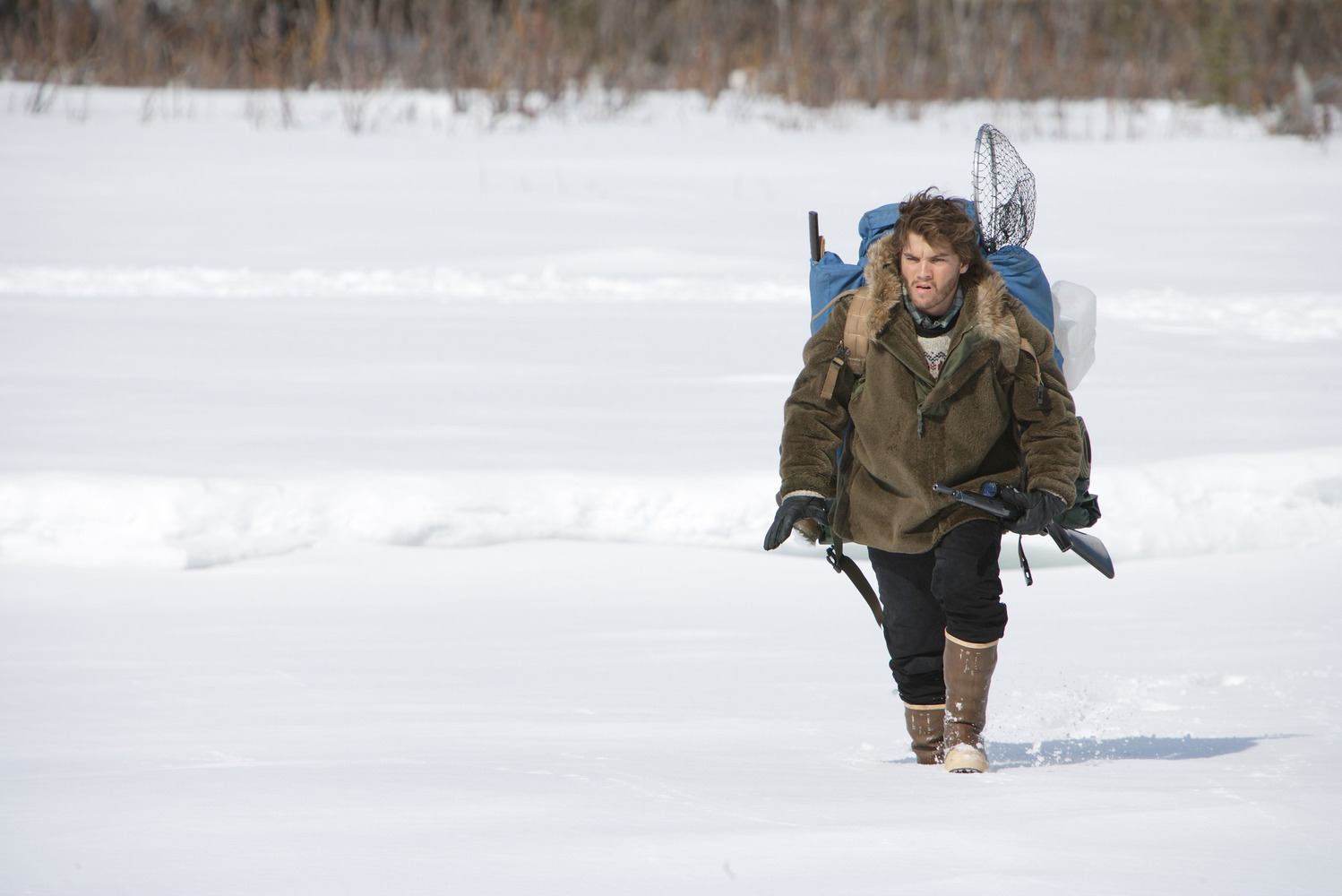
ONLINE Course:
ENG208 (sec. 501) – Topics in Early British Literature: Into the Wild
Summer 2013
May 20th – August 2nd
Eileen A. Joy, Assoc. Professor (eileenajoy@gmail.com)
Department of English Language & Literature

Figure 1. Werner Herzog, director of Grizzly Man (2005)
“And what haunts me, is that in all the faces of all the bears that [Timothy] Treadwell ever filmed, I discover no kinship, no understanding, no mercy. I see only the overwhelming indifference of nature. To me, there is no such thing as a secret world of the bears. . . . I believe the common character of the universe is not harmony, but chaos, hostility, and murder." (Werner Herzog)
“Under the greenwood tree, / Who loves to lie with me / And tune his merry note, / Unto the sweet bird's throat. / Come hither, come hither, come hither. / Here shall he see / no enemy / But winter and rough weather." (Shakespeare, As You Like It)
COURSE OBJECTIVE
The primary objective of this course is to introduce students to representative works in early British literature (Middle Ages through the Enlightenment), grouped around a theme. Prerequisite: ENG101.
COURSE DESCRIPTION
This course will serve as an introduction to a few of what may be considered some of the key literary works of the British Middle Ages, Renaissance, and Enlightenment, and it will also be an exploration of the theme of individuals who either seek out or thrown into wild, unknown, dangerous, and supernatural territories. In these territories (forests, secret islands, the Alaskan wilderness, enchanted castles, haunted caves, stormy heaths, war zones, dark undergrounds, dangerous rivers, uncertain seas, etc.), we will consider the ways in which the human comes up against and struggles with, but also forms alliances with, the non- and inhuman. This course will also include several contemporary films that explore the same thematic territory and that also draw upon the traditions of earlier literatures.
Although this is an online course, lecturing (i.e., written and/or spoken lectures) will not be a main component of this course; rather, assigned texts and films will be supplemented by links to important background material, and to discussion prompts, all designed to help you to better understand the primary course material. The primary "meat" of the course will be the discussions we have together about these materials on our Discussion Board (on our Blackboard course site), which will be partly structured by prompts from the Instructor. Therefore, being an active participant in these discussions, as well as keeping up with the weekly exams (due every Friday), is vital to your success in this course.
Finally, since this is a 10-week compressed version of a course that typically takes 15 weeks to complete, be forewarned that it is reading- and writing-intensive. You must be prepared to keep up with everything and to not flag in your energies as a participant in the online discussions. Reserve the weekend for reading and viewing the films, and use the regular weekdays, Monday through Friday, for participating on the Discussion Board and preparing your written short responses.
REQUIRED TEXTS (all readings are available online through hyperlinks on this web-based syllabus; films will have to be rented and/or purchased by students and it is strongly recommended that students establish a Netflix account for the duration of the course or rent the films through Amazon.com's Instant Video or through an iTunes account)
PRIMARY WORKS/FILMS:
Anonymous. Sir Gawain and the Green Knight.
Sir Thomas Malory. "The Tale of Balin and Balan," from Le Morte DArthur.
Shakespeare. King Lear.
Shakespeare. As You Like It.
Jonathan Swift. "A Voyage to the Country of the Houyhnhnms," Part IV: Gulliver's Travels.
Francis Ford Coppola, dir. Apocalypse Now (film).
Werner Herzog, dir. Grizzly Man (film).
Zach Braff, dir. Garden State (film).
Sean Penn, dir. Into the Wild (film).
SECONDARY CRITICAL WORKS:
Anniina Jokinen, "Heroes of the Middle Ages"
In Our Time: The Fisher King (BBC4 Radio Show)
Christian Cotroneo, "The Politics of Violence in Malory's Treatment of the Arthurian Legend"
Ian Johnston, "Speak What We Feel: An Introduction to King Lear"
In Our Time: Lear (BBC4 Radio Show)
Ian Johnston, "Variations on a Theme of Love: An Introduction to As You Like It"
Jon Krakauer, "Death of an Innocent: How Christopher McCandless Lost His Way in the Wild"
Ned Zeman, "Timothy Treadwell: The Man Who Loved Grizzlies"
Figure 2. still image of Zach Braff in Garden State (2004)
COURSE REQUIREMENTS*
*all written assignments, not counting participation on the Discussion Board, are to always be formatted in Microsoft Word [saved as .doc or .docx files] and emailed directly to me at: eileenajoy@gmail.com
SHORT RESPONSES (40%)
There will be 4 short papers (approx. 2 typed double-spaced pages total), due by midnight on the Saturday of the week assigned (see Schedule of Events below), where you will creatively respond to 2 open-ended prompts that ask you to reflect upon the material currently being read, viewed, and discussed (these are typically inspired by what transpires on the Discussion Board each week--see below). There will never be right or wrong "answers" to these prompts, as they are interpretive in nature, and what I mainly want to see is a close attention to the concrete details of what has been read and viewed (what is said and done by specific characters in specific scenes) as well as a commitment to reflecting thoughtfully on the works we have explored together in relation to the larger themes of the course. The hyperlinks for these assignments will be activated on Thursday evenings in the weeks in which they are due.
DISCUSSION BOARD (30%)
On our Blackboard course site, there will be a Discussion Board which we will rely upon for our collective weekly discussions. Each week, on Sunday evenings, I will post three to five "thinking prompts," each one of which will serve as a separate "discussion thread." Since this is an online course, vigorously participating in these conversational threads on the Discussion Board is vitally important, especially Mondays through Thursdays (we'll consider Fridays a "day off" from discussion, although if you want to continue posting then, feel free). This course will place an important emphasis on open and free discussions where you should feel encouraged to express your opinions and questions without worrying over whether you are saying the "right" or "wrong" things. This is a literature course, not a chemistry or astronomy course, and the best we can do in this course is learn together how to be more thoughtful readers of literature, and also to see if we can get more out of literary texts and films than we might have initially thought was possible. We want to have fun, while also exploring the very serious and pressing social and cultural questions that great works of art always raise for us. I will help you become sharper and more critical readers, and each student will help each other and me to create a learning community that is student-centered and highly interactive.
As a general rule of thumb, I expect each student to participate, actively and with some gusto, in at least two (if not more) discussion threads each week and to actively help guide the dialogue that occurs there, stimulate participation, respond to others' questions and raise new questions, and seek clarification when necessary (which means: do everything you can to keep the conversations moving in a productive fashion, and ask lots of questions along the way).
IMPORTANT NOTE: Discussion Boards are opened and closed each week, so it is imperative that you contribute on a regular basis each week. Once a discussion is closed, you cannot go back to it, and there is no way to make up "lost" Discussion Board participation, and as this is 30% of your total final grade, you do not want to neglect this.
FINAL ESSAY (30%)
At the end of the term, you will be given an essay prompt, and will be asked to write a 3-page reflective essay in which you will thoughtfully explore the themes of the class in relation to one or more of the primary literary works we have read.

Figure 3. still image from Apocalypse Now (1979)
GRADING POLICY
| 90-100% | A: Exemplary work in all areas identified in assignment instructions |
| 80-89% | B: Good in most areas, but some lack of attention to detail is present |
| 70-79% | C: Standard work, but needs improvement in numerous areas |
| 60-69% | D: Substandard work, needing improvement in all areas |
| under 60% | F: Entirely fails to meet the standards of university work and minimum assignment expectations |
WEB ACCESS AND USE
An SIUE e-mail account and Web access are REQUIRED for this course. We will actively use our Blackboard course site (logon at bb.siue.edu) for website links, assignments, discussion board, additional course materials, the reporting of grades, etc. This online syllabus will be your main portal to all course materials, but the Blackboard site will get you here, as well as to the Discussion Board, and also provide important weekly announcements that will not be on this syllabus. You will not be able to pass this course without becoming a proficient user of Blackboard (which, by the way, is extremely user-friendly). It is IMPERATIVE that you consult this interactive syllabus as well as our Blackboard course site on a daily basis, so that you don't miss out on important announcements, links, etc.
Please note that Blackboard may not work properly with certain internet browsers or web servers. If you are having trouble connecting or navigating the site, you may obtain assistance at the Information Technology Services. ITS also provides Blackboard workshops and support for SIUE students. For general information, training schedules, or to make an appointment, please contact them by phone at 650.5500 or email them at ftc_help@siue.edu. If you are on campus, they are located in the basement of Lovejoy Library, LB-0005.
In order to get started with learning how to use Blackboard and making sure it works with your computer's browsers, you will want to visit these sites:
ACADEMIC DISHONESTY
Any student found engaging in an act of academic dishonesty will be promptly dismissed from the course with a grade of "F." By "academic dishonesty," I mean PLAGIARISM (the act of representing the work of another as one's own), which the University considers a grave breach of intellectual integrity. All definitions, terminology, concepts, and patterns of organization taken from an outside source must be identified and given credit in any essay or exam you write--whether it be for the English department or any other department. For more detailed information on this, please consult the following: SIUE Plagiarism Policy.
DISABILITY ACCOMMODATIONS
If you feel that you are entitled to special academic accommodations for documented disabilities, please contact the Disability Support Services office in Rendleman Hall #1218 (Phillip Pownall, Director), or visit their website, and they will help you fill out the necessary paperwork.

Figure 4. Derek Jacobi as King Lear, Brooklen Academy of Music (2011)
SCHEDULE OF EVENTS
| Week 1 | May 20-24 | Get Acquainted with Syllabus & Blackboard + Start Reading/Viewing |
| Week 2 | May 27-31 | View: |
| Apocalypse Now (Francis Ford Coppola, dir.) | ||
| Read: | ||
| Monomyth: The Hero's Journey | ||
| Week 3 | June 3-7 | Read: |
| Anonymous, Sir Gawain and the Green Knight | ||
| Reading Questions: Sir Gawain and the Green Knight | ||
| Reading Notes: Sir Gawain and the Green Knight | ||
| Anniina Jokinen, "Heroes of the Middle Ages" | ||
| Chivalry (Wikipedia) | ||
| Listen: | ||
| In Our Time: The Fisher King (BBC4 Radio Show) | ||
| Short Response #1 Due: Saturday, June 8th | ||
| Week 4 | June 10-14 | View: |
| Garden State (Zach Braff, dir.) | ||
| Week 5 | June 17-21 | Read: |
| Thomas Malory, "The Tale of Balin and Balan" | ||
| Background: Sir Thomas Malory | ||
| Some Scattered Notes on Malory | ||
| Christian Cotroneo, "The Politics of Violence in Malory's Treatment of the Arthurian Legend" | ||
| Short Response #2 Due: Saturday, June 22nd | ||
| Week 6 | June 24-28 | Read: |
| Shakespeare, King Lear | ||
| Synopsis & Backround to King Lear (Wikipedia) | ||
| Ian Johnston, "Speak What We Feel: An Introduction to King Lear" | ||
| Listen: | ||
| In Our Time: Lear (BBC4 Radio Show) | ||
| Aid: Shakespeare Glossary | ||
| Week 7 | July 1-5 | View: |
| Into the Wild (Sean Penn, dir.) | ||
| Read: | ||
| Jon Krakauer, "Death of an Innocent: How Christopher McCandless Lost His Way in the Wild" (Outside Magazine article) | ||
| Week 8 | July 8-12 | Read: |
| Shakespeare, As You Like It | ||
| Synopsis and Background to As You Like It (Wikipedia) | ||
| Ian Johnston, "Variations on a Theme of Love: Introduction to As You Like It" | ||
| Short Response #3 Due: Sunday, July 14th | ||
| Week 9 | July 15-19 | View: |
| Grizzly Man (Werner Herzog, dir.) | ||
| Ned Zeman, "Timothy Treadwell: The Man Who Loved Grizzlies" (Vanity Fair article) | ||
| Week 10 | July 22-26 | Read: |
| Jonathan Swift, "A Voyage to the Country of the Houyhnhnms" (from Gulliver's Travels) | ||
| Background: Jonathan Swift | ||
| Synopsis and Background to Gulliver's Travels | ||
| Satire (Wikipedia) | ||
| Short Response #4 Due: Sunday, July 28th | ||
| FINAL ESSAY | Final Essay Due: Friday, August 2nd |

Figure 5. Emile Hirsch as Christopher McCandless in Into the Wild (2007)